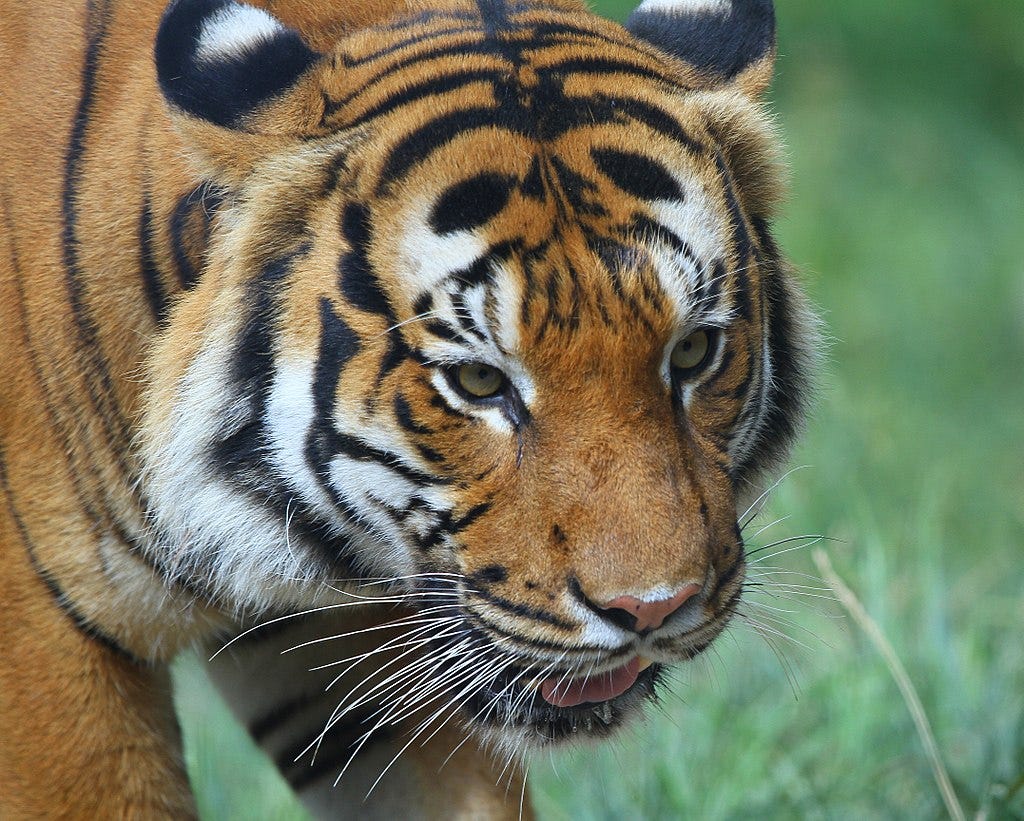Tigers under attack
Three men were arrested in Malaysia with a tiger carcass in their boot, but this is just the tip of the iceberg for the threatened species
Police in Malaysia arrested three men after discovering them with the body of a critically endangered tiger in the boot of their car. The discovery was made in the southern state of Johor and the tiger had severe snare wounds and six gunshot wounds to the head.
There are thought to be fewer than 150 Malayan tigers living in the wild across the country and police commander Rosli Md Yusof described them as a “priceless national treasure”. “Their loss due to human greed is a betrayal of our heritage,” he added.
But it’s not just in Malaysia where tigers are under threat. They remain highly endangered worldwide, thanks to a cocktail of issues including deforestation, illegal hunting and trafficking and climate change affecting habitats.
A report last year from the anti-poaching organisation TRAFFIC reported that consumer demand for tiger skin and bones in Asia is an ongoing issue. In places like Vietnam and China, tiger parts are perceived to have value in traditional medicines, or are seen as symbols of high social status. In 2021, TRAFFIC found that 43 per cent of traditional medicine practitioners in Vietnam used tiger derivatives in their work.
A more recent review of laws across 12 countries which are home to tigers found critical gaps in protection laws that leave them vulnerable. The report called on tiger nations to fully criminalise the entire supply chain, including digital transactions, and to more clearly define trade to prevent advertising and possession of tiger parts.
Without further help, the majestic tiger could soon be confined to history books.
Global: More than 24 years after it was originally proposed, the first part of a World Trade Organization treaty banning harmful fishing subsidies came into effect last week. The treaty prevents governments from offering subsidies for the fishing of already-overfished stocks. According to some estimates, governments have supported such fishing to the tune of $400bn over the past 25 years. (Mongabay)
Brazil: Hundreds of animals, including toucans and tortoises, have been rescued in Brazil in the country’s largest ever operation against wildlife traffickers. Officers arrested 47 people, with more than 800 animals taken to a specialist facility in Rio de Janeiro. The crackdown targeted a specific gang which authorities said had operated for decades. The group also traded in weapons and ammunition. (ABC)
Canada: Five people are facing charges relating to the killing and trafficking of birds of prey, including eagles. The individuals are accused of attempting to sell animal parts, and investigators found freshly removed eagle feet during searches. The crimes took place in Alberta, where indigenous people have some rights to hunt wild animals for subsistence reasons, but products cannot be sold. (Cochrane Now)
Chile: Fifty birds were found inside small juice boxes by Chilean customs at its border with Argentina. The smugglers had been travelling by car and officers’ suspicions were aroused when they saw empty containers for bird food. Of the 50 chicks, 17 had died because of the conditions. Two individuals were arrested on suspicion of wildlife trafficking. (Noticias Ambientales)
Kenya: Stolen donkeys are being sold to buyers in China for use in traditional medicines, putting strain on the species, an investigation has found. Donkey slaughterhouses were closed down in 2020 in Kenya, but the trade in hides continues with animals killed illegally and then exported under false labels. Donkey hides are boiled down in Chinese factories and used to produce a purported remedy for insomnia and aging. (The Revelator)
Australia: Five vessels have been destroyed after they were discovered illegally collecting sea cucumbers. Nearly 1,500kg of cucumber was seized alongside assorted fishing equipment. The ships were identified as having originated from Indonesia. (Baird Maritime)
Hong Kong: A 37-year-old man has been jailed for 40 months for money laundering connected to wildlife trafficking. Experts say it is a first-of-its-kind case in Hong Kong and underscores the connections between wildlife traffickers and money laundering. (South China Morning Post)
Sri Lanka: An elephant keeper has been sentenced to 15 years in prison for keeping a baby elephant and falsifying papers to make it appear to have been obtained legally. It is the first case of elephant trafficking to be filed to a court in Sri Lanka. Prosecutors believe as many as 40 baby elephants have been stolen from their herds and then sold for $125,000 each. Baby elephants are considered as status symbols among the Sri Lankan elite. (The Star)
Indonesia: Nearly 1,000 environmental crimes were handled in the year from November 2024, according to the Indonesian Environment Ministry. Around a third came via public complaints with the rest via routine monitoring and inspections. In total, 845 businesses were sanctioned. (Antara News)
Thank you so much for reading Wild Crime. This is a fully reader-supported publication with no outside funding. Paid subscriptions make it possible for us to dig deeper and pursue investigations that take time and resources. But even if you’re reading for free, you’re helping to keep this work alive, and I’m grateful for that.
If you’d like to support Wild Crime further, consider becoming a paid subscriber or sharing this newsletter with someone who might find it interesting. Every bit of support makes a real difference.


